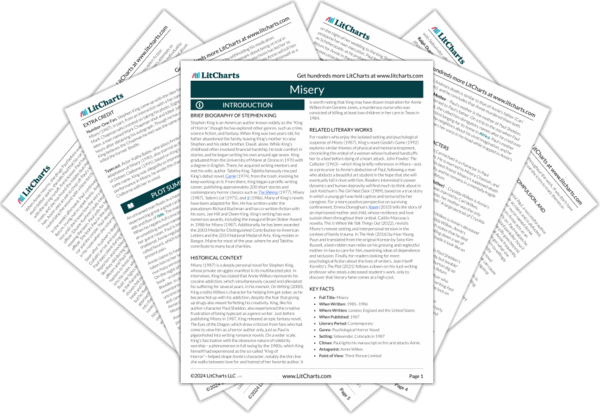Annie’s claims that divine intervention brought Paul to her recalls Paul’s perception of Annie herself as godlike in the way she controls his life. The hidden object that Paul hears but cannot see increases the scene’s tension. The Overlook Hotel is the setting of another novel by Stephen King—
The Shining (1977)—which also deals with themes of addiction and psychosis. Annie’s inability to recall Pomeroy’s murder indicates her own psychosis is so extreme that she occasionally blacks out and commits violent acts. By implying the police are biased against her, Annie reveals she is still living in a fictional world where she sees herself as a victim rather than a killer.
